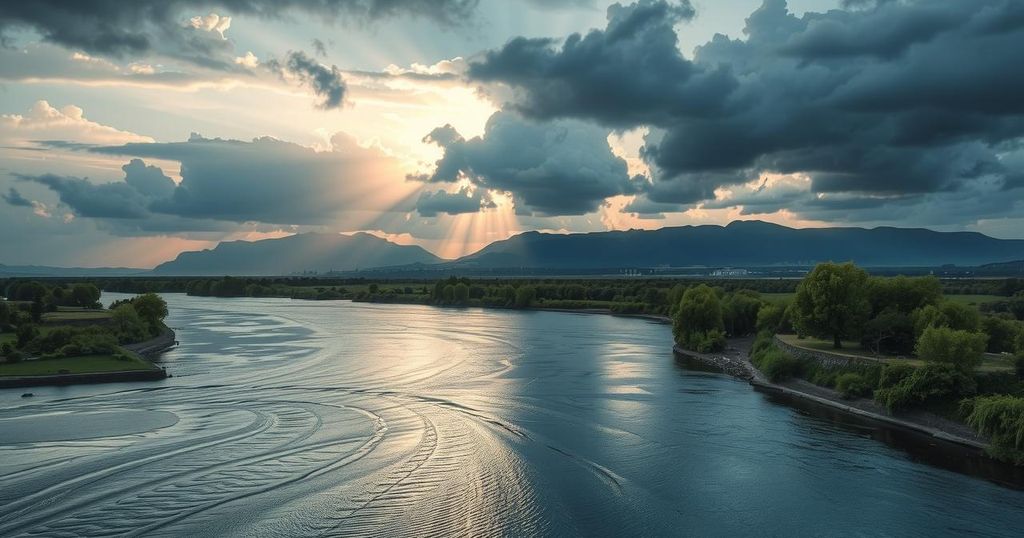Escalating Conflict Forces President Tshisekedi to Abandon Davos Trip

DR Congo’s President Felix Tshisekedi halted his Davos trip due to escalating conflict with M23 rebels, who have seized large areas in eastern DR Congo, displacing over 400,000 people. The town of Goma is at risk if the rebels advance further. The UN indicates that external support, particularly from Rwanda, fuels the conflict, prompting warnings of a potential regional war.
President Felix Tshisekedi of the Democratic Republic of Congo has abruptly ended his attendance at the World Economic Forum in Davos to address a deteriorating security situation in his country. Armed conflict has surged in the eastern regions, primarily driven by the M23 rebels, who have gained control over significant areas, resulting in a humanitarian crisis and the displacement of over 400,000 individuals since the year began.
The M23 rebels have recently captured key towns such as Masisi and Minova in North Kivu, raising concerns over the potential fall of the provincial capital, Goma. This city, which has a population exceeding one million and is strategically located near the Rwandan border, has experienced prior terror when the rebels took over briefly in 2012 before retreating.
Reports from various sources, including the United Nations, indicate that M23 has now taken the town of Sake, located 20 kilometers from Goma. However, the Congolese army has claimed to have countered the rebel advance in Sake, which serves as a refuge for many displaced residents fleeing ongoing violence. They have been seen escaping with essential belongings in desperate conditions.
Since 2021, the M23 has progressively seized control of resource-rich territories in eastern DR Congo, causing extensive displacement. Following a lull in fighting during mid-2022, hostilities have resurged since October, exacerbating the existing humanitarian crisis. Both the DR Congo and the United Nations have accused Rwanda of backing the M23 rebels, but Rwandan officials have not publicly acknowledged these claims.
On a broader scale, UN Secretary-General Antonio Guterres has expressed concerns regarding the potential escalation of this conflict into a wider regional war. He urged all parties involved to respect the sovereignty of the Democratic Republic of Congo, emphasizing the need to terminate support for armed groups operating in the region.
The ongoing conflict in the Democratic Republic of Congo (DRC) has historical roots, notably involving the M23 rebels, linked to previous uprisings and persistent instability in the eastern regions. The region boasts vast mineral wealth, which has, unfortunately, made it a battleground for various armed groups, exacerbating local tensions and humanitarian crises. The involvement of neighboring countries, particularly Rwanda, has further complicated the situation, leading to international concerns about security and regional stability.
In summary, President Felix Tshisekedi’s immediate return from Davos underscores the urgency of addressing the escalating violence in eastern DR Congo where M23 rebels have made substantial territorial gains. The ongoing conflict has resulted in widespread displacement and humanitarian challenges, prompting international actors like the UN to call for a resolution to prevent further destabilization in the region. Impending risks of escalated violence necessitate a concerted effort to support the DRC government in securing peace and stability.
Original Source: www.bbc.co.uk








